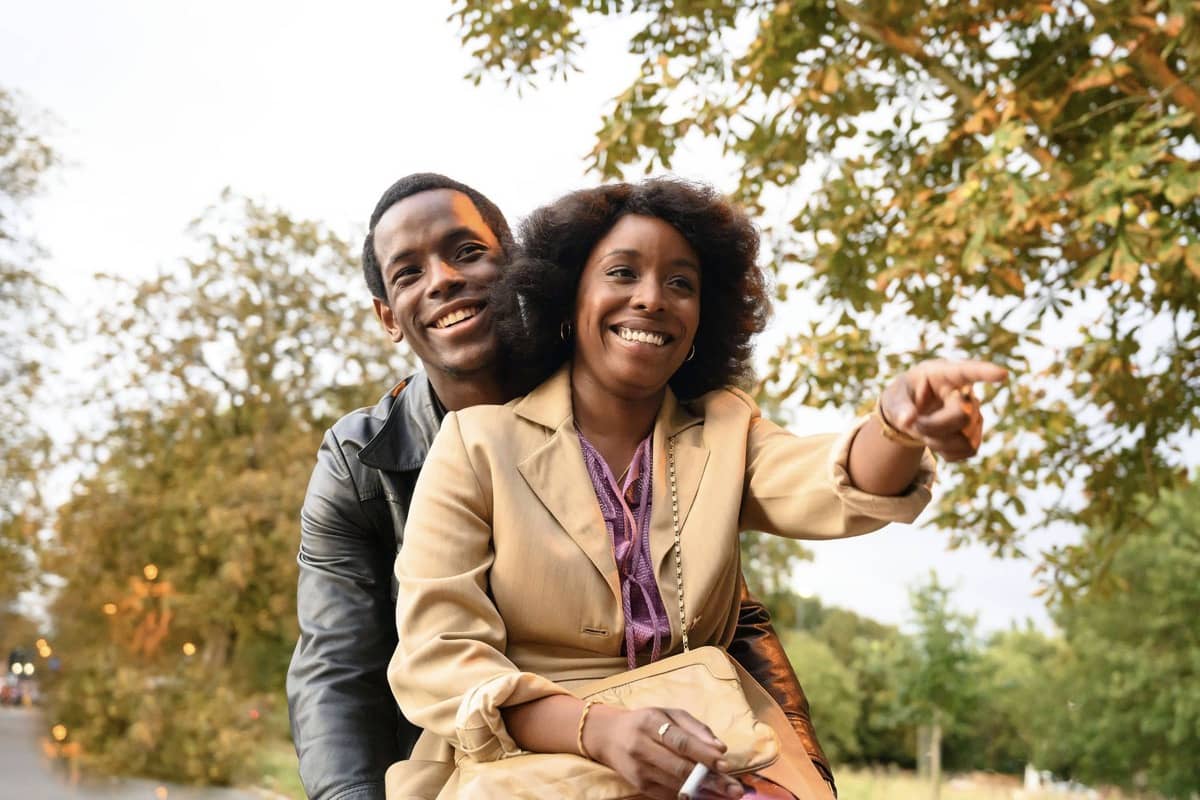
The second offering from Steve McQueen’s Small Axe anthology series called Lovers Rock, aims to perfectly capture one night in time in the 1980s London West Indian community. Behind closed doors at a blues house party; black friends, family and strangers come together to feel a connection through food, libations and most importantly music — a regular tradition born from their exclusion from white nightclubs. It is not intended to represent any real events, but rather provide a feeling of nostalgia for those that grew up attending parties like this one, and edify others as to the origins of the soulful style of reggae that continues to influence music today.
A departure from the series in some ways, notably in its reduced runtime of just 68 minutes, it plays more episodic, as an episode of Easy would, and allows you to take a breath and simply feel the environment rather than focus on a particular story. It’s entirely possible for someone to watch and come away from it thinking that nothing happened, and they wouldn’t be entirely incorrect. In fact, Lovers Rock may feature the fewest words of consequence spoken over the course of an hour, but what it does so well is fully immerse you into the atmosphere, rather than keeping you as a simple observer.
It is a celebration of elements of filmmaking like costume (Lisa Duncan and Jacqueline Durran), choreography (Coral Messam), and most certainly music, all merging to convince you of its setting. From the opening frames you are a part of this party. You watch the DJ (Kadeem Ramsay), Selector (Alexander James-Blake), and crew clearing furniture and setting up with equipment, women cooking delicious food (which at least on screen seems to criminally go uneaten), and partygoers getting dressed and making their journey to its doors. Once the party begins, the music takes over, smoke fills the air, and eager singles look to find their dance partners for the evening.
What begins as an ensemble finds its central focus as the night goes on, after Franklyn (Micheal Ward) smoothly introduces himself to Martha (Amarah-Jae St. Aubyn) and the pair bond on the dance floor, and over a series of dramatic moments that are big enough to take notice, but not enough to stop the festivities. While there are gentle reminders of the tension that exists at the time, this is a night that is all about passion, and intimacy bred from music.
The two crowning achievements of this idea is a sequence in which Janet Kay’s “Silly Games” is continued by partygoers a capella style for, what could feel like an eternity, or a moment depending on if you have been able to lose yourself in the crowd as well. In contrast to that, men who seemed content to drink and smoke away from the dance floor, seem to become intoxicated by the music once “Kunta Kinte” by The Revolutionaries plays, and more than ever you see the brilliance of Shabier Kirchner’s cinematography as the camera weaves its way amongst them.
As all parties worth their salt do, it lasts until daybreak and we follow Martha and Franklyn’s extended farewell’s with promise for another night to come, before ending as Martha sneaks back into her room just before it’s time to get up for church. Watching her face recount the events from the evening while lying in bed wearing the clothes from the night before harkens to Linklater’s Dazed and Confused, another film more about music and feeling than it is story.
Lovers Rock proves once again that substance does not always require an enthralling storyline in order to be engaging. The evidence of that is found in the artistry of the filmmaking used to create it, and it certainly serves as a mesmerizing reminder of black culture that was thriving inside of those closed doors.

